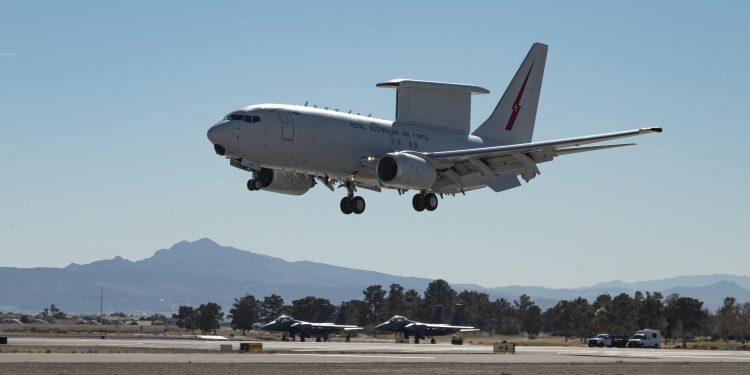Deputy Defense Secretary Kathleen H. Hicks met yesterday with Australian Defense Secretary Greg Moriarty to advance the United States-Australia alliance and compare perspectives on managing national defense enterprises, Pentagon spokesman Eric Pahon said.
Moriarty told Hicks that Australia’s government has decided to provide lethal and nonlethal aid to Ukraine. Hicks welcomed the announcement as a demonstration of Australia’s enduring commitment to global peace and security, Pahon said.
The leaders also discussed progress in the Australia-United Kingdom-U.S. trilateral security partnership, known as AUKUS. Topics included the identification of initial, advanced capabilities to pursue through trilateral cooperation, governance processes for the trilateral partnership and efforts to bolster information-sharing, Pahon said.
They also discussed alliance management issues, including defense industrial base cooperation and pending U.S. strategic reviews, he said.
“Deputy Secretary Hicks and Secretary Moriarty are committed to working closely to advance alliance priorities and objectives to ensure peace and stability in the Indo-Pacific region,” he added.
AUKUS is one of three military alliances with Australia. The others are the Australia, New Zealand and United States Security Treaty, which was established on Sept. 1, 1951, and the Quad. The Quad includes the United States, Australia, Japan and India. Secretary of Defense Lloyd J. Austin III recently said Australia and the U.S. have an “unbreakable alliance” that continues to provide stability and security for the Indo-Pacific and beyond.
While the alliance itself is now over 70 years old, Australia and the United States have fought side by side in every major conflict since World War I, he said.
The United States will never forget that after the Sept. 11 attacks, Australia invoked the collective defense article of the ANZUS Treaty for the first time in its history, he said.
Once again, Australia sent troops to fight shoulder-to-shoulder with the United States and other allies and partners through two decades of combat during the war on terror. Austin said it’s a testament to the enduring nature of “mateship” that our Australian allies stood by with us to the very end of our presence in Afghanistan, and the United States will be forever grateful.
“Our shared interests and values ensure that our alliance will continue to advance our shared vision for a free and open Indo-Pacific, Austin said.
The United States and Australia will continue to advance peace, security and prosperity to ensure an open, inclusive and resilient Indo-Pacific region, according to a Sept. 16 joint statement on Australia-U.S. ministerial consultations.
“Our allies and partners are our greatest strategic asset and central to achieving our collective goals in the region. We will pursue closer cooperation in priority areas, including regional security, infrastructure, economic growth technology, democratic resilience, human rights, addressing the climate challenge, and pandemic response,” according to the joint statement.
The secretaries and ministers reaffirmed their commitment to working through the Quad to support Indo-Pacific partners to respond to the defining challenges of our time, the statement read.











